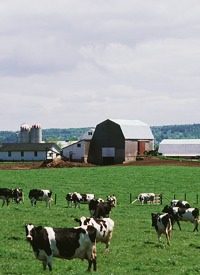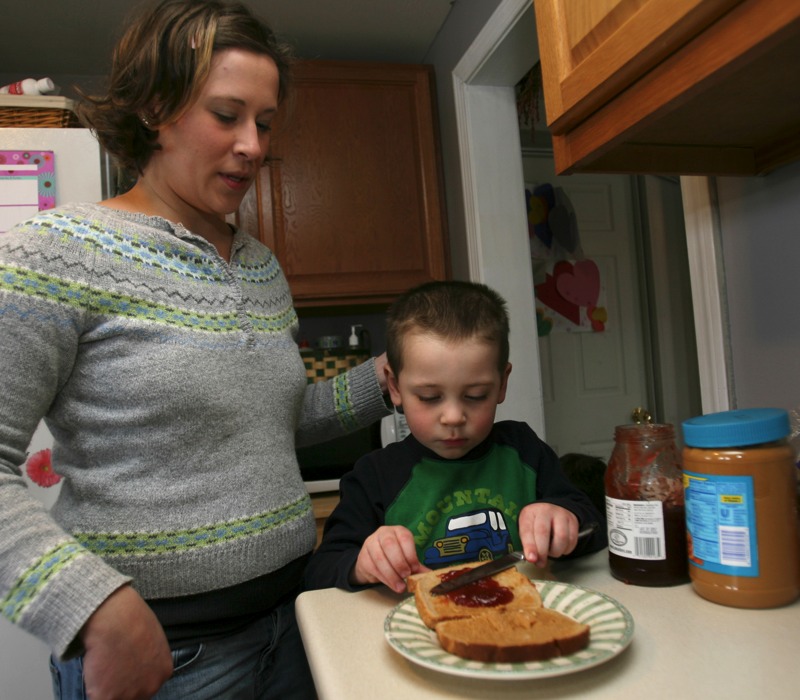
Since its introduction, H.R. 875 has gathered 41 cosponsors, nearly half of them women, though women make up only one-fifth of the House membership. While this could be mere coincidence, there is a reason that may explain this disproportionate support among female legislators for this measure. Since many of them have undoubtedly been caregivers responsible for ensuring healthy, wholesome meals for their children, they probably have worried about the safety of their family’s food more than once. Such fears may have increased as a result of the recent “peanut butter scare.” Let us cite just one of hundreds of news items on this subject, this one post on WebMD:
Peanut Butter Salmonella Outbreak Rages On
Jan. 21, 2009 — More than 125 consumer peanut butter products, from more than 70 companies, have been recalled in the ongoing U.S. salmonella outbreak.
The most recent person to get sick fell ill on Jan 8. Since it takes up to three weeks for cases to be reported to the CDC, more cases are expected. So far, the CDC has received reports of six deaths and 107 hospitalizations among the 486 people sickened in 43 U.S. states and one Canadian province.
The 2009 peanut butter outbreak followed another in February 2007, when  Peter Pan and some Great Value (Wal-Mart’s store brand) peanut butters were linked to 425 cases of salmonella across the United States. While choosy mothers may not necessarily choose Jif, choosy mothers (and fathers) do expect that one of the staples of school lunchboxes should be safe for their children to eat.
Peter Pan and some Great Value (Wal-Mart’s store brand) peanut butters were linked to 425 cases of salmonella across the United States. While choosy mothers may not necessarily choose Jif, choosy mothers (and fathers) do expect that one of the staples of school lunchboxes should be safe for their children to eat.
It is very likely that problems with salmonella-tainted foods has made the idea of the Food Safety Modernization Act a popular one in Congress. However, as often happens when people turn to the federal government to solve problems that might best be solved locally, H.R. 875 is packed with features that go far beyond its stated intent, and might wreak economic devastation on millions of farm families.
An article posted on NaturalNews.com on March 11, “Stop Federal Takeover of Food Regulation in H.R. 875,” warned:
H.R. 875 would essentially transfer all state control over food regulation to the Food Safety Administration (FSA), a newly established federal bureaucracy to be created within the Department of Health and Human Services (DHHS). Its implications point to the elimination of all independent, family farms as well as all organic farming operations due to overbearing federal regulations subjectively determined by FSA in favor of corporate factory farms.
The writer also hammered home another constitutional point: “While stripping states of what little Tenth Amendment powers remain, H.R. 875 would establish a central regulatory body with even more unaccountable authority than that of the FDA.”
He makes a legitimate point. H.R. 875 mandates what is a clear violation of the Tenth Amendment, which states that all powers not delegated to the federal government are retained by the states or the people. The Constitution does not delegate powers to monitor food safety to the executive branch (nor any branch) of the federal government. That the intrusion of the new Food Safety Administration into the affairs of the states and municipalities is planned by this bill is signaled by this statement: “The Administrator shall leverage and enhance the food safety capacity and roles of State and local agencies and integrate State and local agencies as fully as possible into national food safety efforts.” (Emphasis added.)<
The definitions found in this legislation indicate that it intends to create an all-encompassing and intrusive agency. For example, “The term ‘food production facility’ means any farm, ranch, orchard, vineyard, aquaculture facility, or confined animal-feeding operation.”
The legislation will also mandate extensive record keeping and inspections, which may not be very burdensome to the large factory farm, but which will be difficult for the small family farmer to comply with. First, “Any food establishment or foreign food establishment engaged in manufacturing, processing, packing, or holding food for consumption in the United States shall register annually with the Administrator.” Then, “The Administrator shall establish an inspection program, which shall include statistically valid sampling of food and facilities to enforce performance standards.”
The legislation requires “each food production facility to have a written food safety plan that describes the likely hazards and preventive controls implemented to address those hazards.” And it invites snoopy government bureaucrats to descend upon each “food production facility [which] shall permit the Administrator upon presentation of appropriate credentials and at reasonable times and in a reasonable manner, to have access to and ability to copy all records maintained by or on behalf of such food production establishment in any format (including paper or electronic) and at any location, that are necessary to assist the Administrator.”
Recall that one of the complaints levied against King George III by the signers of the Declaration of Independence was: “He has erected a Multitude of New Offices, and sent hither Swarms of Officers to harass our People and eat out their Substance.”
The FSA, by imposing burdensome record-keeping requirements on farmers, may contribute to the eventual closing of all independent, family farms as well as all organic farming operations due to overbearing federal regulations arbitrarily determined by FSA in favor of corporate factory farms.
While every American would be impacted by this federal power grab, farm families, in particular, should be motivated to actively oppose this legislation. For such families, agriculture is not just a way to earn a living, it is a way of life.



